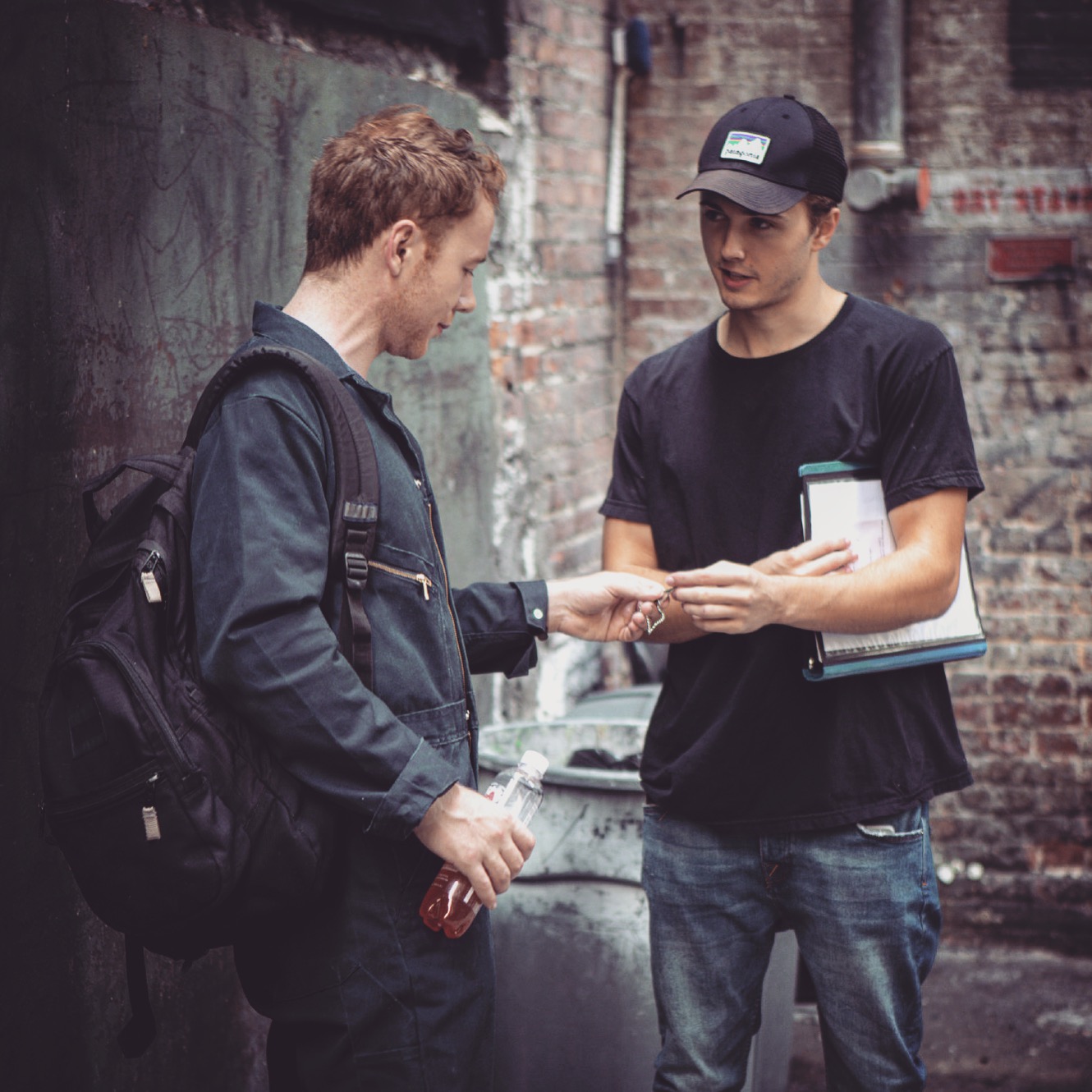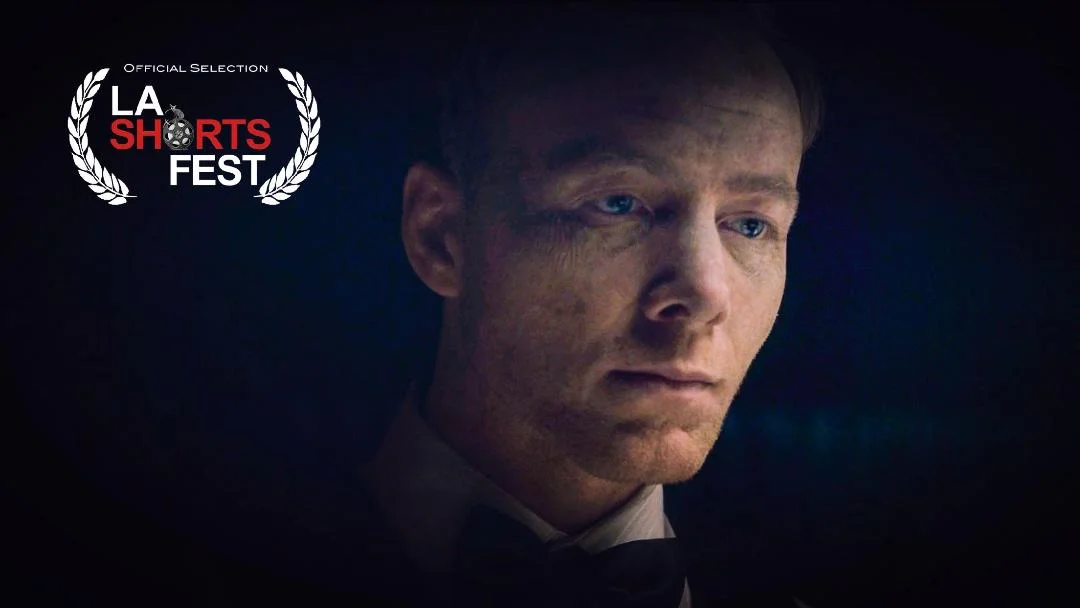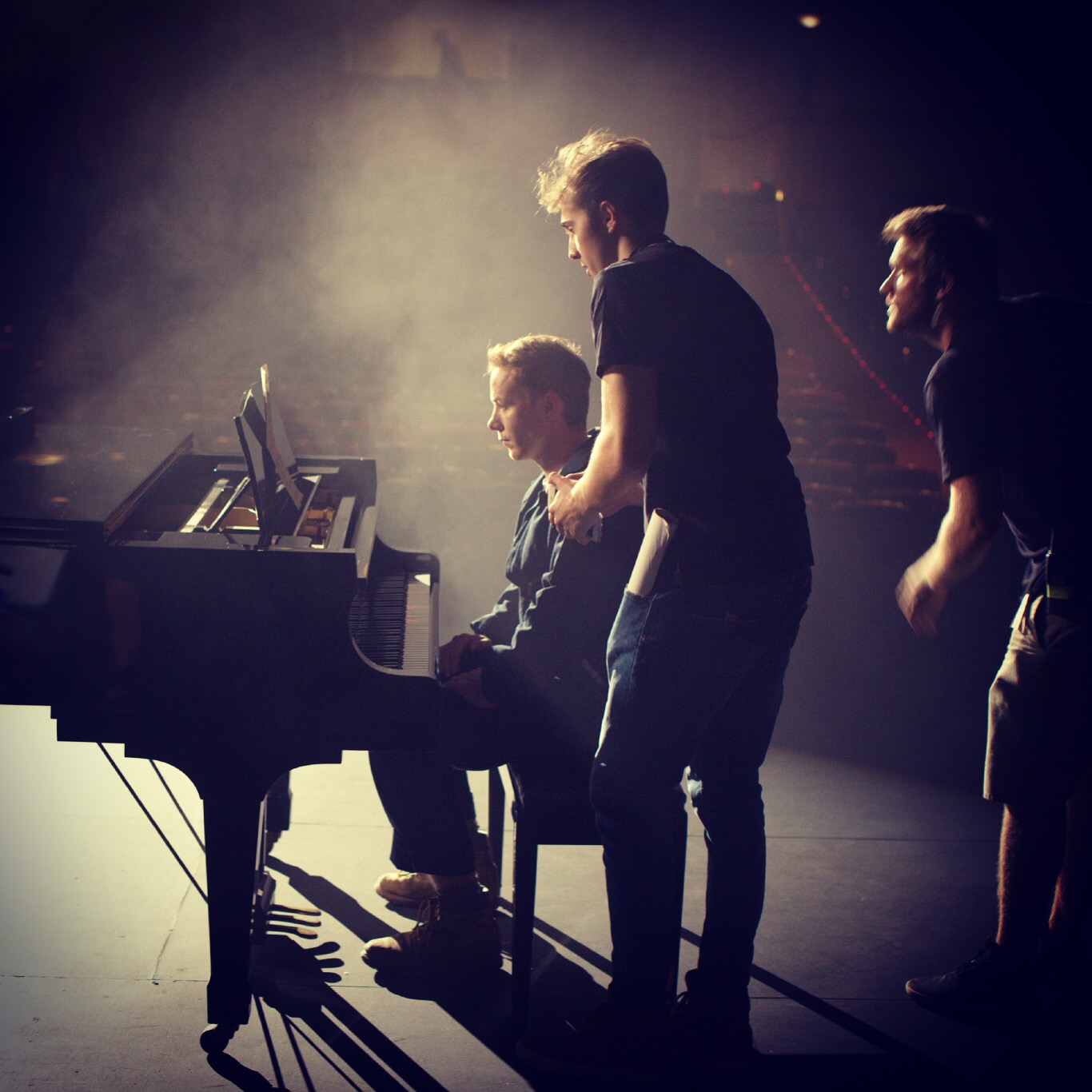ECHOES OF YOU
“Laurence Fuller (of Road To The Well, Paint It Red) stars in Echoes of You as a classical pianist struggling to make his mark who finds his greatest fulfillment in an unlikely place. This is a very lovely short film that builds to an emotional ending that will hit you hard.” - Alex Billington *****
“Rarely has so much emotion been conveyed so sincerely in such little screen time.“ - Film Threat 9/10
“The spirit of fairy tale runs through this elegantly made & elegiac short film“ - Eye For Film ****
Drama / USA / 18 min.
An aspiring classical pianist finds his greatest fulfillment in an unlikely
place.
Director: Henry Quilici
Producer: John Lapin
Writer: Henry Quilici
Cast: Laurence Fuller, Zakary Risinger
ECHOES BETWEEN ACTOR & DIRECTOR
Henry showed me a short documentary he made about discovering his grandfather through a box of letters and journals he found in the attic. We discussed how eerily similar the project which fills my days is, a film about my father, the late art critic Peter Fuller and going through his journals almost every day from the TATE archive. I’ve made my way through a huge chunk of his writings public and private, to piece together a singular man of principles in his writings. And now his echoes speak to me. Some things are so special they take more than just one lifetime to complete. That's really what this piece is about, the Greek philosopher Hippocrates said "Life is short, but art is long".
I found Henry to be incredibly clear about what he wanted, everything very specific in emotional terms, he spoke very subjectively and compassionately, not the sort of move your head a little to the left which can leave actors feeling like meat puppets and end up with mechanical performances. He worked as many of the best directors do, from the inside out.
The first meeting with Henry Quilici happened at the end of last year shooting his USC short "Tweaker Speak” about a meth addict dealing with the demons of addiction as he tried to get his daughter back. A very different piece. I noticed the things Henry would say were very to the point, very clear, uncluttered by doubts or abstract theory, his notes always referred back to the story or to human experience.
A couple months later I was contacted by Henry and his producer Cam Burnett (a young filmmaker with similar sensibilities). When I first read the script and came to the end, I burst into tears, it had come to me soon after I had finished reading a passage by John Berger in his book “A Painter Of Our Time” which detailed the life of an artist, most often one of constant sacrifice for their work. Henry had captured that plight so beautifully with this story, I had to do it.
ECHOES THROUGH TIME
In many ways I feel Echoes Of You is about time. Man and time have such strange relationship, as we exist in time but the way we experience it is never as it actually unfolds. As our internal clock passes with a tether to societies expectations of us, we too little consider the affect our actions are having on the people around us. The echoes of not just our voice in a cave, but our movements in the world each day. To show up each day sit down at the keys, explore the depths of our unconscious.
Echoes have are a vital component in the acting process, because what we end up becoming in a performance is an echo of that first reading of the script, and that feeling which bounces off the walls of our unconscious, the ever expanding and retracting self, is reshaped with every bump. Like throwing clay against a wall, picking it up and throwing it again against another. Time forms a totally new object, with the heart of the original idea, but with time and movement a new object entirely.
The time it takes for something truly special to emerge in our culture can be an arduous one, this is why it is so important for artists to have faith, to have the strength to step back and see a bit further into the future and into the past with all their actions.
For instance there is the intention to hit a piano key, the thought, the will to create music, the doing of it, the vibrations in wood and in the air which causes the sound and then there is the trace memory the sound makes into us. The next day the vibrations are gone but what is it that remains, what else can we call it but a feeling.
Pushing into these echoes of ourselves man finds again another feeling, another self, rewriting of ones own personal history reveals many selves splintered off into a kaleidoscope of you.
Even the best and brightest fall pray to doubts because of the time it can take from the conception of an idea to its real life manifestation. And yet there are moments that are eternal for us, moments which last in eternity as long as we last and when we give them to another they last forever in them. Those things we cherish that make the world better for our existing and their creation pushing forward a spiritual progress.
ECHOES THROUGH GENERATIONS
The compassionate passing on to generations is important part of this story. If we chose to listen, the we can take the best of somebody with us on the hardest roads in life that stretch out before us. It can feel like whispers in the wind sometimes when we talk about something that has a deep and powerful resonance to us.
This piece made me think deeply about the affects of what I wish to leave behind. What marks in the sand I wish to make. We’re all scratching up the dirt at the moment, thousands of impressions made, often without thought for their affects.
What matters are not the constant floods of change which define our generation, but the development of the spirit, the inner world which we must cherish and rely on to provide us with hope.
In the week before shooting I read Viktor E Frenkel’s “Man’s Search For Meaning” in which he suggests the survivors of the concentration camps in Aueschwitz of which he himself was a survivor, had something to live for, that they could cherish on the inside. That they had been touched by great works of art, literature, theatre and music and these moments in their life were the memories which got them through.
Confronted with a boy who is living through possibly the worst conditions a child could be subjected to in our society, I think Andrew gave him all that he had, and aside from the odd sandwich and a place to crash, what he had to give was music, the stronger Andrew could instill this dream of music, the better chance that echoes had of speaking through all the overwhelming obstacles this boy had to encounter.
THE ECHOING SONG
Henry's brother Max Quilici wrote the main theme to Echoes. The piece was so minimally and yet effectively done, I felt there was no way I could do this part without learning at least some of the piano in order to play this song. With the couple weeks preparation, never having laid hands on a piano before, I managed to learn how to play the first half of the song.
I came across a documentary preparing for the role called Pianomania, about a piano tuner for some of the world's best pianists. He was someone whose love for the piano extends beyond the performance, becomes almost an intellectual pursuit, like preparing for a role that one never acts. The language that he began to use to describe moments within a sound were complex, abstract and beautiful. The joy and the passion for the music then became a dedication to the development of someone else’s craft.
That has always been something that’s interested me, how much should we use art of the same medium to influence our work. I feel that art should be the language to express the fullness of life. But the conflict then comes when confronted with another’s work that we stand in admiration, that admiration must then come from an ideal within us that we wish to reach. Then the choice becomes wether to run forward towards that same goal, almost like an Oedipus trying to surpass the father, or wether to stand back and remain in a place of fixed and constant admiration allowing it to either influence one’s work in another medium, or is it enough to touch a place within a performance, to shape the artists work by pushing a sound, an aesthetic a feeling further than they could have by themselves. The position of a conductor to a musician, a director to an actor, or a parent to a child, shaping the raw materials of a human being in a particular direction, for the purpose of benefiting humanity.











I was very happy that Echoes Of You had the opportunity to screen at Newport Beach Film Festival because of the whale watching community and conservation in Newport Beach, I learnt recently that in the echo of a whale, there is recorded, in the textures and every scratch of its tone; a map of everywhere it has been, its social groups, how it felt about its environment and all the other creatures surrounding. That is just like us, and the echoes that we as people leave on others.